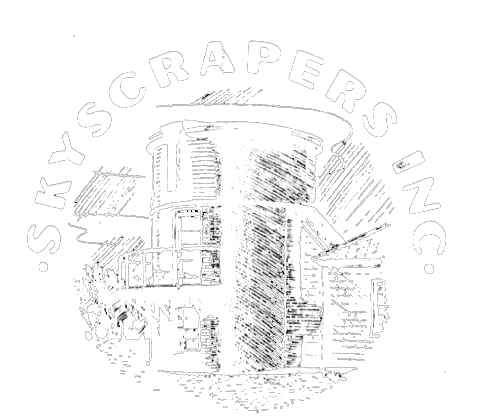August Meeting
Saturday, August 5, 2023, 6:00 pm
Grand Diversity of Extrasolar Worlds
NOTICE
We will not have a potluck Ham & Bean Supper this month as originally planned. The hot, humid and unpredictable nature of our recent weather has forced us to reconsider an outdoor meal.
Instead, this month, we will have something more predictable, a "Dessert Buffet". If you are able to contribute something, please let Kathy Siok (kathys5@cox.net) know in advance.
We will not have a potluck Ham & Bean Supper this month as originally planned. The hot, humid and unpredictable nature of our recent weather has forced us to reconsider an outdoor meal.
Instead, this month, we will have something more predictable, a "Dessert Buffet". If you are able to contribute something, please let Kathy Siok (kathys5@cox.net) know in advance.
AUGUST MEETING
In-person and via Zoom
In-person and via Zoom
Meeting & Speaker
Saturday, August 5, 2023 at 7:00 PM
at Seagrave Memorial Observatory
Also on Zoom
Topic: Skyscrapers, Inc.'s August Meeting
Time: Aug 5, 2023 06:30 PM Eastern Time (US and Canada)
https://us06web.zoom.us/j/
Meeting ID: 811 5464 8054
Passcode: 743351
at Seagrave Memorial Observatory
Also on Zoom
Topic: Skyscrapers, Inc.'s August Meeting
Time: Aug 5, 2023 06:30 PM Eastern Time (US and Canada)
https://us06web.zoom.us/j/
Meeting ID: 811 5464 8054
Passcode: 743351
6 PM: Socializing
7 PM: Business Meeting & Presentation
TOPIC: "Grand Diversity of Extrasolar Worlds"
SPEAKER: Sarah Millholland, PhD, Assistant Professor of Physics at MIT

SPEAKER: Sarah Millholland, PhD, Assistant Professor of Physics at MIT

Photo Credit: NASA
In 341 B.C. the Greek philosopher Epicurus said, “There is an infinite number of worlds, some like this world, others unlike it". In 1995, the first hot Jupiter was found around 51 Pegasi. NASA has now found over five thousand exoplanets. In her talk, Sarah will discuss the four major questions and how exoplanets are found.
ABOUT
I am an Assistant Professor of Physics at the Massachusetts Institute of Technology in the Kavli Institute for Astrophysics and Space Research. As a data-driven dynamicist, I am interested in a broad range of problems in exoplanetary science. In particular, I study the formation and evolution, orbital architectures, and interiors/atmospheres of exoplanets. I address these problems using a synergistic approach involving celestial mechanics theory, numerical simulations, and statistical methods.
Before starting at MIT in July 2022, I was a NASA Sagan Fellow at Princeton University from July 2020-June 2022. I obtained my PhD in Astronomy from Yale University in May 2020, and I was an NSF Graduate Research Fellow from 2017-2020. My thesis was titled "Data-Driven Dynamics of Planetary Systems". I spent my first year of graduate school at the University of California Santa Cruz and subsequently transferred to Yale to keep working with my advisor, Professor Greg Laughlin. Before that, I was an undergraduate student and Goldwater Scholar at the University of St. Thomas in St. Paul, Minnesota, where I obtained bachelor's degrees in physics and applied mathematics in 2015.
I am an Assistant Professor of Physics at the Massachusetts Institute of Technology in the Kavli Institute for Astrophysics and Space Research. As a data-driven dynamicist, I am interested in a broad range of problems in exoplanetary science. In particular, I study the formation and evolution, orbital architectures, and interiors/atmospheres of exoplanets. I address these problems using a synergistic approach involving celestial mechanics theory, numerical simulations, and statistical methods.
Before starting at MIT in July 2022, I was a NASA Sagan Fellow at Princeton University from July 2020-June 2022. I obtained my PhD in Astronomy from Yale University in May 2020, and I was an NSF Graduate Research Fellow from 2017-2020. My thesis was titled "Data-Driven Dynamics of Planetary Systems". I spent my first year of graduate school at the University of California Santa Cruz and subsequently transferred to Yale to keep working with my advisor, Professor Greg Laughlin. Before that, I was an undergraduate student and Goldwater Scholar at the University of St. Thomas in St. Paul, Minnesota, where I obtained bachelor's degrees in physics and applied mathematics in 2015.



